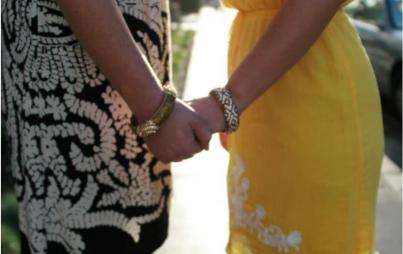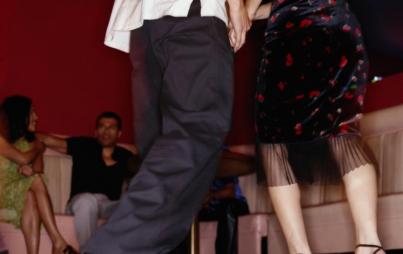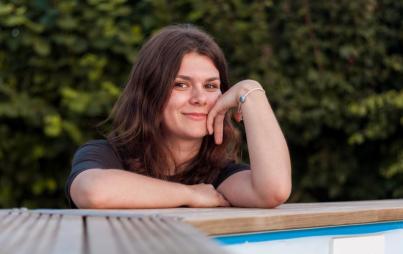
Photo by Steve Halama on Unsplash
My legs spread apart, arms outstretched, fingers splayed and separated, I stood there and wondered if I’d be able to do this again and again. His hands slid slowly down the curve of my ample hips. The contempt I felt collected as a sour bubble of anger in my stomach, inching its way up my throat. His toothy grin reminded me of a leering jackal sizing up innocent prey. I counted to 10 and tried to ignore his fingertips making rubbing motions near the crotch of my jeans. My back was damp with sweat, face splotchy red with embarrassment, teeth clenched in frustration while I prayed that this would soon be over.
He had the power, and I had no voice.
A gravelly voice crackled through the ancient, rusty metal megaphone mounted high above our heads, “That’s enough, Hawk.”
The buck-toothed oaf grunted in response, but he did remove his hands from my body.
The sore muscles in my chest relaxed, and I released my breath, trying to control the hot, angry tears, trying to calm the bile rising in my throat. I refused to give this man the satisfaction of knowing how deeply he had rattled me. I refused to cry in his presence. And I wondered if things would be like this every time I came here.
This was the first trip to visit my boyfriend in a federal correctional facility, his new home for the next four years — thanks to an impulsive, short-sighted decision and mandatory minimum sentencing guidelines.
What am I doing here? How did I get HERE?
My life plan hadn’t included me — as a 19-year-old, third-year college student — visiting the love of my life in federal prison.
I wasn’t naive enough to think that your entire life went just as you expected it to, but this detour was a shock. It felt more like drowning in quicksand than a minor speedbump.
My love was responsible for many of the beautiful firsts in my life to date — first date, first kiss, first boyfriend, first sexual experience. Conversely, he was also related to the darker firsts that I’d rather forget — the first time a gun was pointed at me, first time wearing police handcuffs, first time visiting a federal prison.
When we met on the first day of eleventh grade, there was an undercurrent of magic. We were both young and new to love, and we’d found something extraordinary in one another. Our family and friends weren’t quite as sure since we appeared to be opposites, but we naively and innocently dug our heels in and pushed forward. I showed him the proper way to tie a necktie, and he taught me the fine art of shooting dice. We had a connection that seemed illogical. Humor was one cornerstone that united our hearts, and laughter stayed at the core of our relationship, through all the highs and lows of a twenty-year relationship.
This moment, this actual trip to an actual prison to see my actual boyfriend is the toughest thing I’ve ever had to manage.
I walked toward the entrance with a small group of women and wondered who they were all visiting. Walking along silently, most avoided making eye contact, and I couldn’t stop my mind from manufacturing a backstory for each person.
I was a strong, independent only child who could be bossy at times, so I tempered my nervous energy by slipping into event planner mode. I had called AAA to have a map, and an itinerary mailed, gassed up my 1981 Subaru station wagon, grabbed my three closest friends and we set out on our journey. On a sunny Friday afternoon in late January, four young, adventure-ready college students hit the road smiling, munching on gas station snacks and blasting old Michael Jackson jams. When we left the University of Virginia campus in Charlottesville, VA and headed for the highway to start our 235-mile trek to Morgantown, WV, we had no idea that our estimated four-hour trip would take us over 10 hours.
What my map neglected to point out, or perhaps I was too naive to notice, 80 miles of our 235-mile trip would be spent slowly circling up and down the narrow and steep hills of the Alleghany and Appalachian Mountains. My father’s meticulous auto care kept my car roadworthy, but it was not ready for a mountain adventure. The car was not a four-wheel drive, nor did it have the right tires to handle the light snowfall that began two hours into our odyssey.
When we finally arrived in Morgantown after 2 am, we were cranky and exhausted beings. Even my anxiety and excitement at seeing my boyfriend was dampened by our day of mountain climbing.
The next morning when we arrived at the prison, we were confused. I reread the directions to make sure we were in the right location, and it seemed that we were. I’m not sure what I expected, but this wasn’t it. The outside of the prison looked like a neat and well-maintained park services building. It was a low, single-story brown brick building with enormous picture windows facing the parking lot. The most striking thing? The background of the Appalachian Mountains. The small, scripted sign read, “John F. Kennedy Center” and in much smaller font, “Federal Correctional Institution."
The aesthetic outside was that of a neighborhood park with benches and low, wooden two slat fences. Barren trees lined the driveway to the parking lot, and the pathway to the front door was spotted with perfectly pruned green shrubs. Things looked and felt calm, the setting serene. It seemed that at any moment, a hummingbird might land on the hand-carved sign to serenade us all.
Was I expecting barbed wire? Definitely. Was I expecting dirty, grey bricks that looked like it was in a cold, depressing situation? Absolutely.
This didn’t look or feel anything like I had anticipated.
The scenery and stillness helped to lift my spirits as I bid farewell to my friends. I was the only person approved for this visit, and it was scheduled for 8 am to 3 pm. My friends headed into town to see if they could strategically bump into any WVU students and have a little fun.
I smoothed my hands over my clothing, grateful that I had carefully and copiously taken an hour to review the four pages of wardrobe guidance. My jeans were not so baggy as to seem sloppy, but looser than I preferred to wear them. Paired with a loose cotton sweater, “understated” makeup, athletic sneakers that were easy to remove and slip back on, and a small purse stuffed with three rolls of quarters for snacking, I felt like I was ready.
I walked toward the entrance with a small group of women and wondered who they were all visiting. Walking along silently, most avoided making eye contact, and I couldn’t stop my mind from manufacturing a backstory for each person. The petite redhead with the clingy sweater dress had to be visiting her older fiancée who was inside for running a meth lab. Something in the way the older Black woman glided down the path told me that her husband was in for trading insider stock information.
Over a dozen women — girlfriends, wives, sisters, mothers, and daughters pushed the pause button on their daily lives to share a few hours of connection with loved ones. No one else seemed anxious or nervous. I sensed I was the only newbie, and I slipped to the back of the pack to follow their leads.
You Might Also Like: After Incarceration — How Separated Families Reunite
The inside was sterile yet still more dignified than I had pictured. Six grey metal folding chairs with a tall, fake, potted plant surrounding them as bookends. A simple wood-grain desk, bare except for a slim three-ring binder and a single pen.
The women knew to stand to the left side, directly in front of the chairs, and they each leaned down to remove their shoes. This was not covered in all the literature that had been sent to me, so I copied their actions. Shoes off, they each rummaged through their pocketbooks and wallets for photo id and, once again, I did the same. One by one, leaving about four feet between themselves and the woman in front of them, they each held shoes in one hand while strolling to the desk to turn over their ID. The area was quiet; I was able to hear the exchange between the stoic female guard and each visitor.
“Your name?”
“Inmate number you’re here to see?”
“Relationship to the inmate?”
“Are you carrying any contraband?”
“Step to your right for a pat-down.”
Again, and again she spoke with no eye contact, delivering the same questions in precise order, with an unchanging monotone delivery for each woman. Once someone stepped to their right, they were out of the field of view to those of us still waiting for entrance. The guard at the desk would not take a new visitor until she got the all-clear from an out of sight officer. Sometimes the wait between women was short and other times longer. I wondered what caused the time variance, but since no one had uttered a word to another visitor since arriving, I decided to stay silent.
Finally, it was my turn. I was the last one to approach the desk. I had all my answers ready since I had memorized his inmate number months prior. Instead of four questions, I was asked five.
“Is this your first visit?”
I was given what can best be described as a three-minute pre-visit monologue about the dos and don’ts inside the visitation room and the charges that would be levied upon me if I failed to comply. I had no desire or plan to break any rules, yet this harsh pre-scolding still made me uneasy. I nodded and headed for my pat-down, which was in a small coat room that had been converted to a “search area.”
That disgusting, obnoxious correctional officer that performed my first pat-down would be etched in my mind for many years to come.
After his inappropriate assault, I entered the visitation room in a bit of a daze. The older, polished woman that I had noticed earlier made eye contact with me and nodded, softening her eyes. She reminded me of my older aunties who could silently communicate just about anything with a change in their eyes. At that moment, I knew that she was aware of what had just happened to me. Had it happened to her, or was it something that only happened to young, fresh meat visiting for the first time?
I found a seat at an empty picnic table and tried to compose myself before my boyfriend arrived. I wanted to be relaxed and not color our visit with this unpleasantness. We had always been able to discuss any and everything, but I knew that I shouldn’t share this with him. In that quick encounter, I realized that my pie in the sky dreams about his “extended stay” being short and something we could get through as long as we stayed positive had a fundamental flaw in its foundation. He was locked away in prison, and I was in my own prison of sorts.
My desire to love and support my best friend through the next four years meant that I would have to endure pieces of his punishment.
The emotional support I had grown to love would be lessened, and I would not be able to lean on him in the ways I expected. With all that he would encounter daily, I decided that I would filter out as much of the negative as possible so as not to add to his burdens.
When he finally came through the door, I was so relieved and happy to see him, it took no effort to give him the megawatt smile that first attracted him to me. He strolled toward me with a matching grin, and I almost forgot that I wasn’t allowed to jump into his arms. Inmates and visitors could make “appropriate physical contact” at the beginning and end of each visit. I stood as he neared my table, and he pulled me into a quick embrace. He smelled faintly of baby powder and soap. The changes since seeing him in the courtroom four months ago were subtle — cheeks a little leaner, beard much fuller, mustache gone, and eyes dimmer. But this was my heart, and he looked terrific to me.
Sitting across from one another and not being allowed to hold hands was agony. We spent the next seven and a half hours talking, laughing, and snacking under the watchful gazes of three strategically placed guards. The $30 worth of quarters that we fed into overpriced vending machines lasted well into the afternoon. Our conversation traveled from the mundane to the silly and around to heartfelt before dipping into a debate. We discussed the fake beef between the Notorious BIG and Tupac Shakur, and whether Eddie George deserved the Heisman trophy. As we neared the end of the visit, his demeanor changed, and a sadness set in. Before he said a word, I knew he wanted to discuss the shadow in the room.
“Four years is a long time Taya.”
“I know that.”
“I love you too much to do this to you.”
“You’re not doing anything to me. I’m grown, and I can make my own decisions.”
His eyes glistened with unshed tears and unspoken words. A glance over his shoulder gave him the confidence to reach out and cup my chin. “You know you’re the best thing that’s ever happened to me, right?”
I giggled. “Yup, and don’t you forget it!”
We laughed together, and he stared directly into my eyes for what seemed like days. The darkness lifted from his eyes, and he smiled.
“I finally know all the words to that new Michael Jackson song.”
“Oh, you do? Sing it for me!”
There, in that cold, sterile, and overly policed waiting room of low level, white-collar criminals, my guy sang “You are not Alone” by Michael Jackson, his favorite entertainer of all time. His voice was like liquid love to my ears, and the words took on a deeper meaning than Michael could have anticipated.
For these three minutes, we feel like a boy and a girl, hanging at the food court in the mall for Saturday afternoon, teenage fun.
What had seemed like an adequate amount of time suddenly felt like seconds when “Five minutes” was announced over the PA system. I failed miserably in my effort to stay strong and not dissolve into a puddle of tears when hugging him goodbye. We held on to one another, not knowing the date of our next visit. Watching him and the other gentlemen lineup to be led away from us was crushing. It reminded me of the lonely walk we had taken to begin the day.
My friends were waiting outside the prison, and they wrapped me into a three-way hug that was warm, genuine, and full of love. We stayed silent for several minutes, and I allowed the tension, anger, regret, sadness, and heaviness to flow from my body to theirs. Those three amazing young women absorbed every ounce that I released without flinching.
Once I was finally able to compose myself, and everyone climbed back into the car, we drove back to our hotel. No one spoke. It would be a few hours before I shared with them all that had occurred after they dropped me off. I gave them every detail, including the feelings I hadn’t permitted myself to give to my boyfriend. Their support and unconditional love helped me to survive that first visit.
That day was the first of 73 visits I would make over the next four years.
Those visits, and the changes in our relationship as we matured from teenagers to adults, were monumental. We both knew without a doubt that our bond was permanent, and we worked hard to plan for a future beyond those walls. Despite the obstacles, we survived those four years.
Our lives evolved in the direction we wanted based on hard work, a good plan, the support of my parents, my family, our friends, and big dreams. We married, bought a house, planned for and brought a son into the world, and enjoyed our lives together until his death in 2012.
Daily, my memories of him are deeply layered — beginning with our first encounter in eleventh grade to the shock of his sudden heart attack.
Nostalgia, laced with humor and longing, control most of those thoughts. Still, without any warning, a smell, a sound, or a look can carry me swiftly back to that first visit to the Kennedy Center. It’s been over 20 years, yet the physical details and emotions from that day had a permanent place in the fabric of our relationship.








